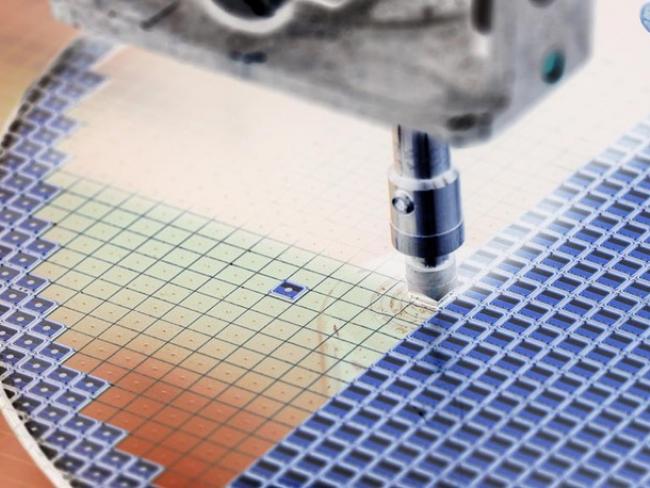29 November 2022

Silicon wafer manufacturing. Image Macro photo/Shutterstock.
The government has, once again, failed to take action to protect British industry, this time Britain’s largest computer chip producer. This vital part of our technological infrastructure is at unnecessary risk.
Two weeks after the government issued a “final order” ordering the Netherlands-based but Chinese-owned company Nexperia to sell Britain’s biggest silicon chip maker, staff at Newport Wafer Fab in south Wales still do not know how secure their future is – either in the short or long term.
The government’s order followed a much-delayed review of security concerns over the sale. Questions were raised in view of Newport Wafer Fab’s numerous sensitive defence contracts with the government.
Failure
This week the select committee on semiconductors hit out at the government’s continued failure to take action to support the industry. Reacting to the decision over Newport Wafer Fab, committee chair Darren Jones said, “Ministers must proactively engage with potential buyers to secure the future of our vital semiconductor cluster in South Wales…”
“The UK is particularly exposed to future disruption…”
Its report, published on Monday, says that “The UK is particularly exposed to future disruption in global supplies of semiconductors and is falling behind other governments in mitigating such risks”.
The committee also criticised the delay in publishing the government’s own long-promised semiconductor strategy, which has been in the works for two years. It was due to have been published this autumn, but all the government will say is that it will publish the strategy “as soon as possible”.
Delay
Dither and delay are the hallmarks of a government stuck between its devotion to the principles of unfettered free trade and demands to support employment and industry in Britain (see Workers November December 2022 edition). Nexperia, for example, acquired Newport Wafer Fab in July 2021, and has been running it for almost a year and a half.
In the interim – in stark contrast to inactivity here – the US has passed the CHIPS and Science Act, which allocates $52.7 billion for chip making, research and development, and workforce development, plus another $24 billion in tax credits for chip production.
The delay in Britain comes amid reports that Jaguar Land Rover has been forced to cut production at its Solihull plant due to a shortage of semiconductors.
